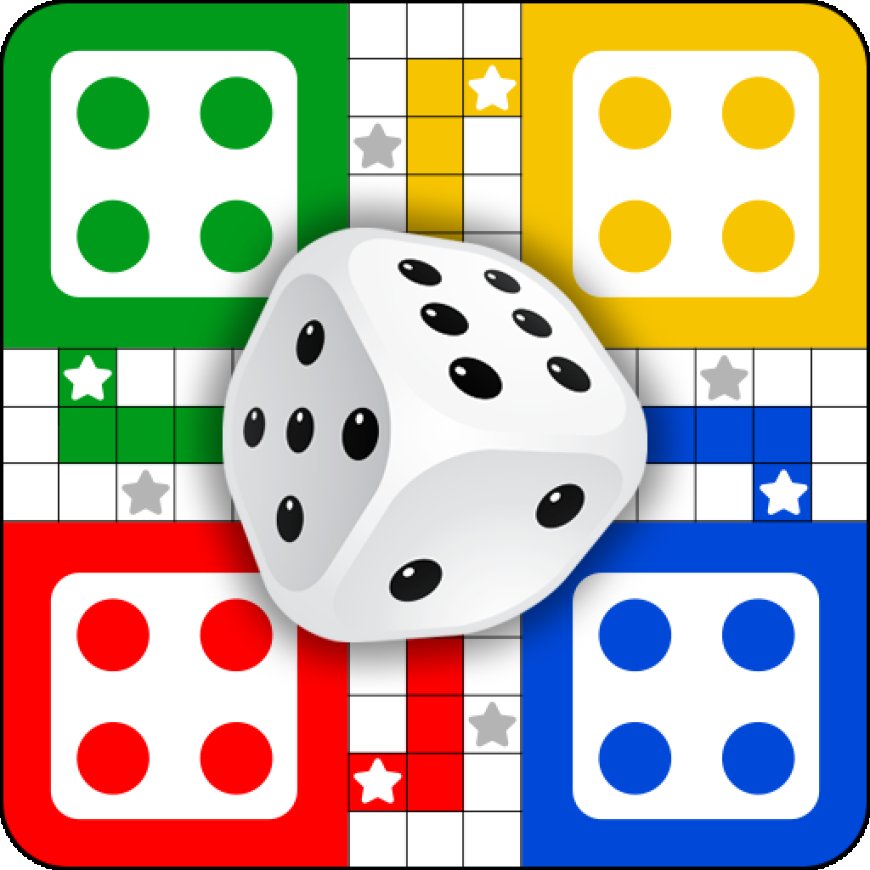From Which Nation Ludo Amusement Was Originated?
To completely appreciate Ludo's beginning, we must get it that it has a place to a far reaching family of board recreations known as "cross-and-circle" diversions.

To completely appreciate Ludo's beginning, we must get it that it has a place to a far reaching family of board recreations known as "cross-and-circle" diversions. Whereas numerous societies autonomously created comparative concepts, the most strong authentic prove overwhelmingly focuses to India as the support of Ludo's coordinate precursor, Pachisi.
The Cross-and-Circle Family: A All inclusive Prime example, an Indian Genesis
The center plan of Ludoa cruciform (cross-shaped) way driving to a central "domestic" areais not special to India. Diversions with comparative formats can be found in different old societies, recommending a principal human interest with race-and-capture mechanics.
Worldwide Cousins, Partitioned Heredities? Whereas diversions like the Local American "Zohn Ahl" or the Korean "Yut" too highlight cross-and-circle plans, they are for the most part considered autonomous developments or exceptionally removed relations. Their rules, pieces, and social settings vary essentially from Pachisi.
India's Conclusive Part: Pachisi, in any case, stands out as the coordinate developmental predecessor of Ludo. Its old ancestry, backed by archeological discoveries (like the Ellora Caves) and scholarly references (like the Mahabharata), immovably builds up India as the beginning point for this particular department of the cross-and-circle family. No other culture gives such a ceaseless and well-documented verifiable way to the diversion we presently call Ludo.
Pachisi's More profound Social Reverberation in India:
Pachisi was distant more than a basic interest in India; it was profoundly interlaced with social, otherworldly, and indeed building perspectives. This significant integration makes its Indian root indeed more distinct.
Enormous Imagery on the Board: The cross-and-circle format of Pachisi wasn't self-assertive. Researchers propose it frequently symbolized the enormous arrange or a mandala, with the central square (frequently called "Charkoni") speaking to the otherworldly center or the universe's heart. The four arms seem imply the cardinal bearings, components, or indeed diverse angles of life's travel. Pachisi wasn't fair approximately moving tokens; it was a scaled down representation of existence.
A Amusement of Dharma and Karma: Whereas the amusement included chance (through the cowrie shells), vital considering was foremost. The amusement was frequently utilized as a allegory for life's eccentrics and the transaction of fate (good fortune of the roll) and free will (key choices). Capturing an opponent's piece might be seen as a mishap, resounding life's deterrents, whereas securely coming to domestic symbolized illumination or accomplishing one's objectives. This basic philosophical layer is a special viewpoint of Pachisi's Indian character, seldom found to the same degree in its afterward derivatives.
Social Custom and Intergenerational Play: Pachisi cultivated social holding in interesting ways. Not as it were was it played in amazing regal courts, but it was too a common family diversion. The team-play perspective of conventional Pachisi empowered participation and communication, frequently rising above social strata. Grandparents would educate grandchildren, passing down not fair rules but too understood social values like persistence, foreknowledge, and strength. This social custom perspective was key to its persevering ubiquity for centuries.
Past Amusement: A Device for Reflection: A few varieties of Indian race recreations, like Gyan Chaupar (a forerunner to Snakes and Stepping stools), were expressly outlined as ethical purposeful anecdotes. Whereas not indistinguishable to Pachisi, they share the same cross-and-circle family and highlight a drift in Indian board diversions to pervade play with more profound meaning and life lessons. This mental and otherworldly profundity is a trademark of antiquated Indian diversion plan that affected Pachisi's persevering legacy.
The Title "Ludo": A Colonial Reverberate, Not an Origin
It's pivotal to repeat that the title "Ludo" is a moderately later, Anglicized term. It was a showcasing choice by Alfred Collier in Britain in 1896, pointed at rearranging and popularizing a amusement he experienced in India. To property the game's beginning to Britain based on its cutting edge title would be associated to saying "curry" begun in Britain since the word was popularized there, in spite of its profound Indian culinary roots.
Play ludo online. In quintessence, whereas Ludo has traveled the world and produced endless varieties, its otherworldly and chronicled domestic remains immovably in India, where its predecessor Pachisi was played on royal residence floors and pervaded with layers of social and philosophical centrality long some time recently it got to be a worldwide pastime.










































